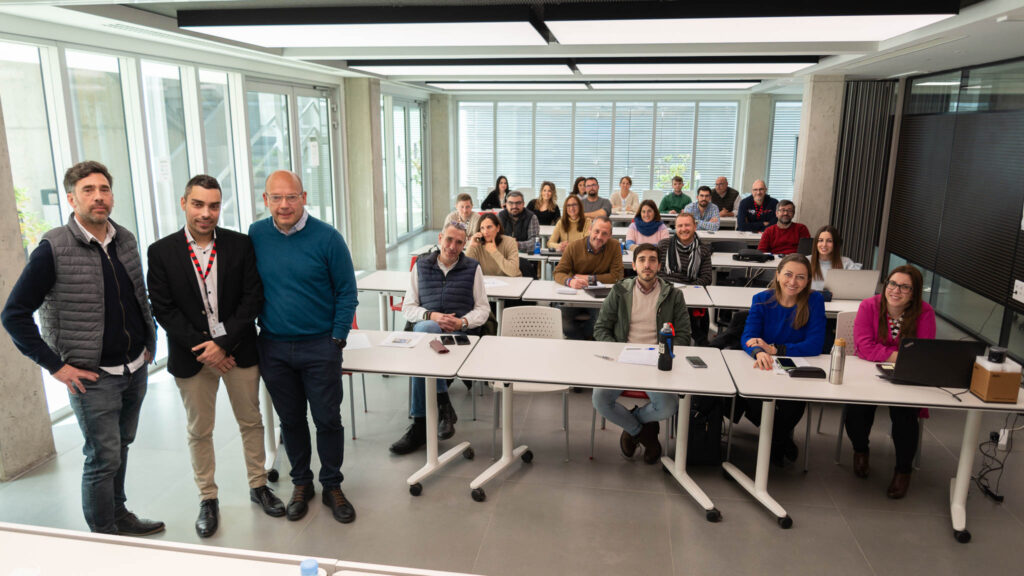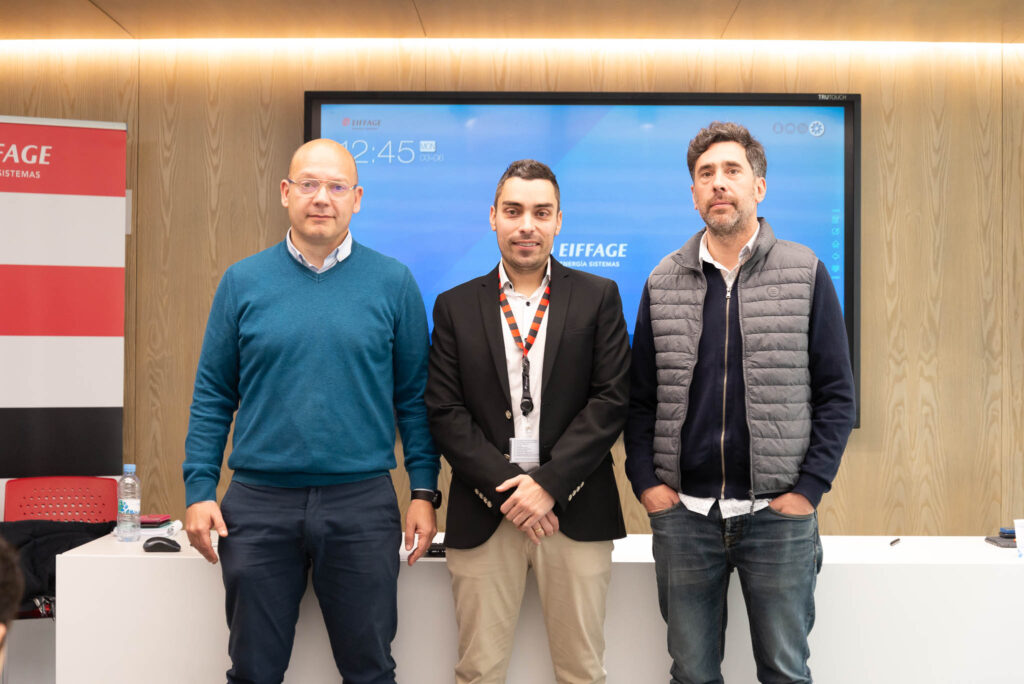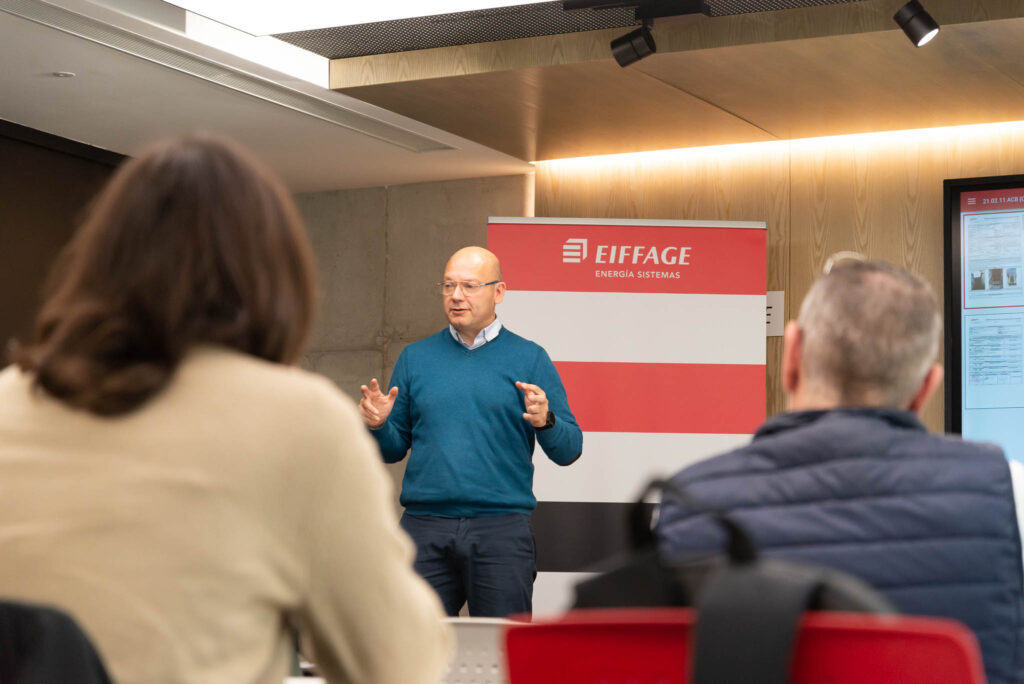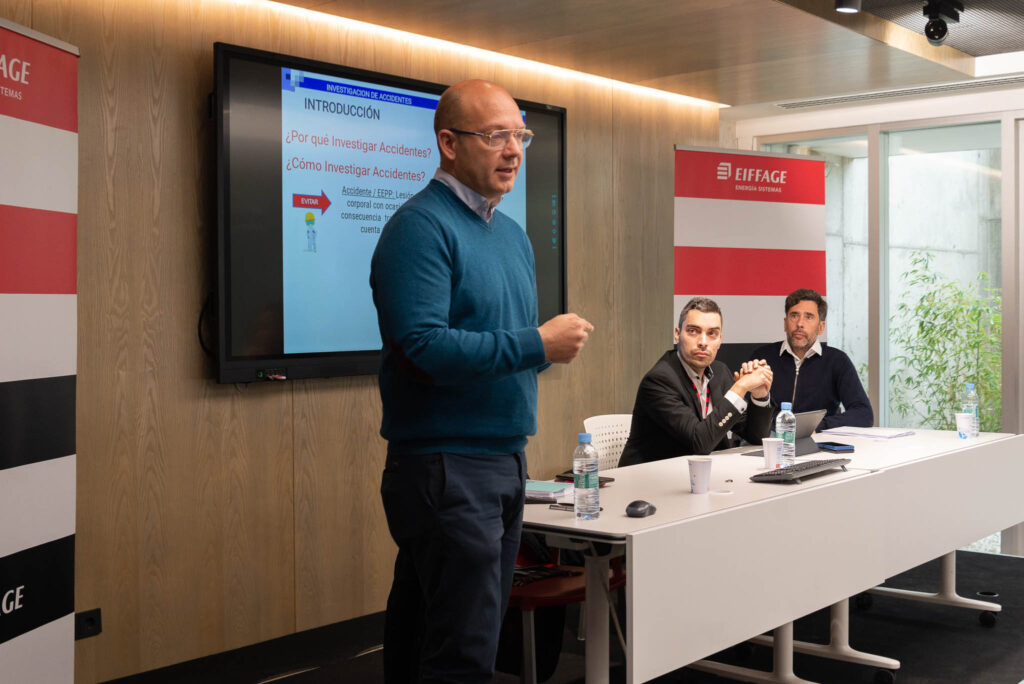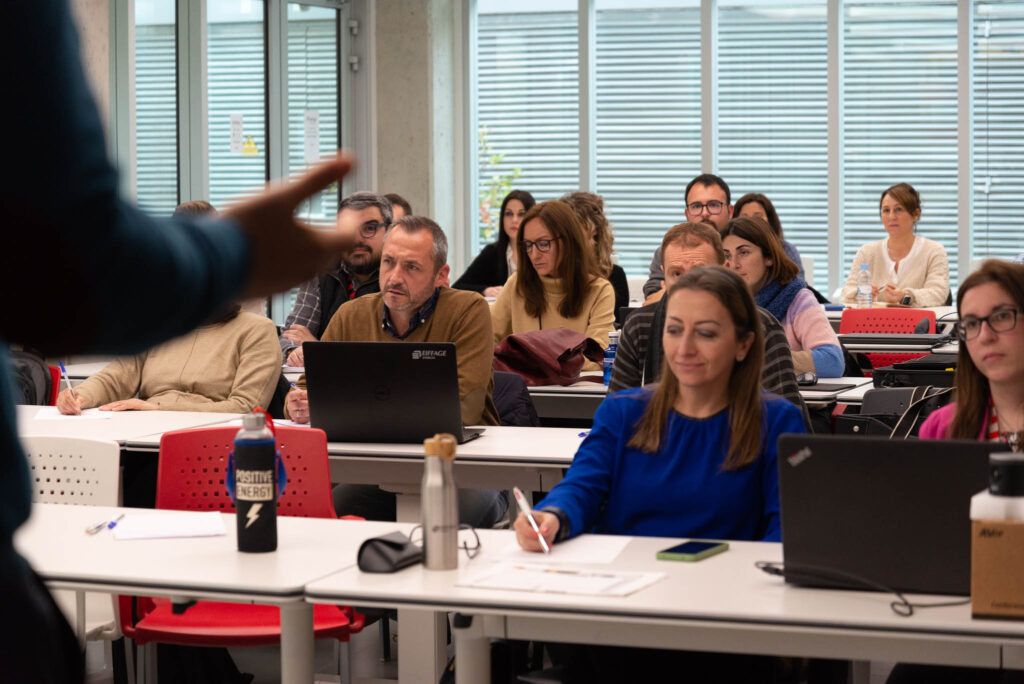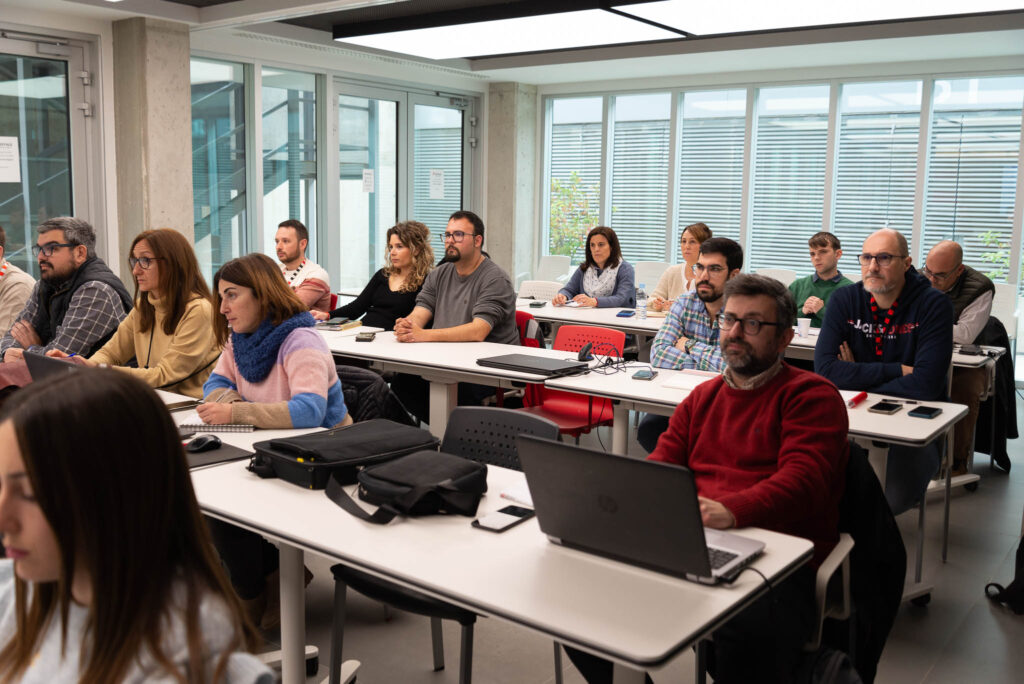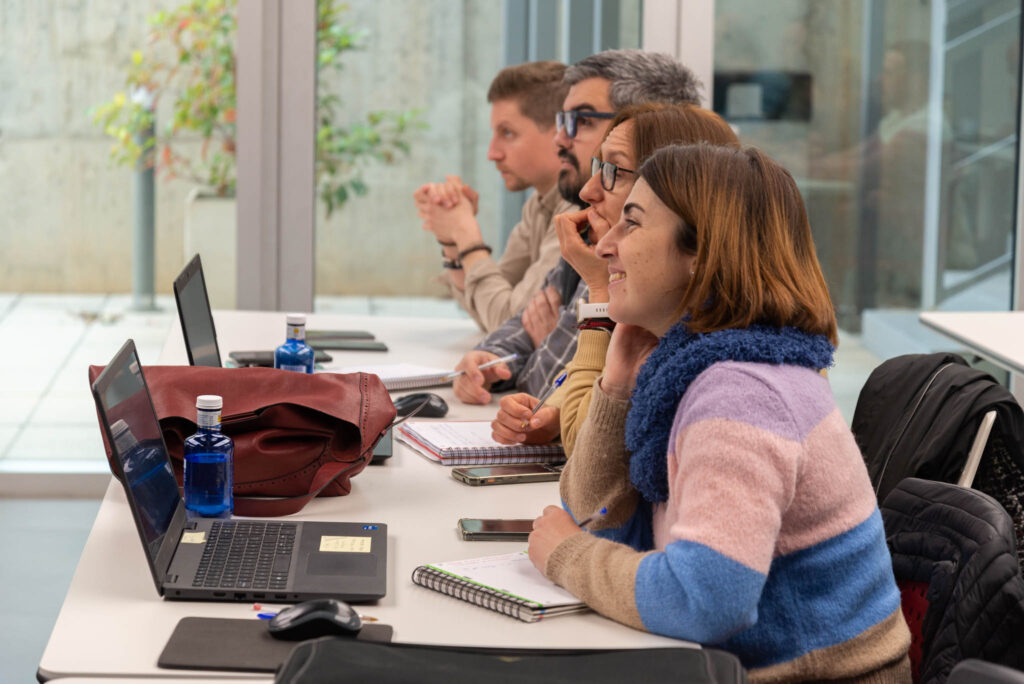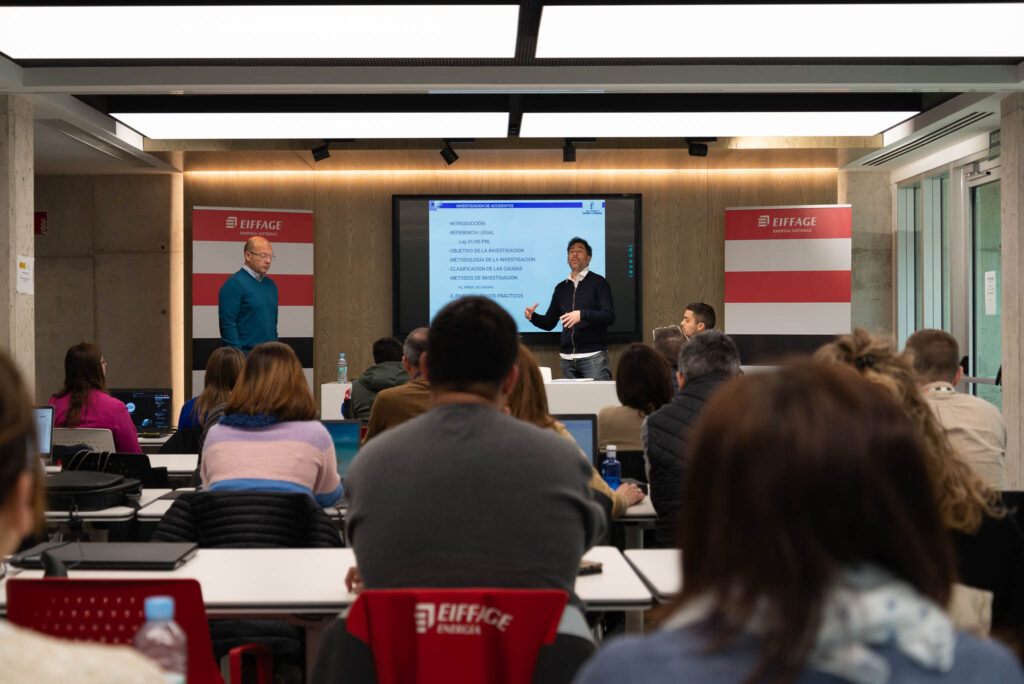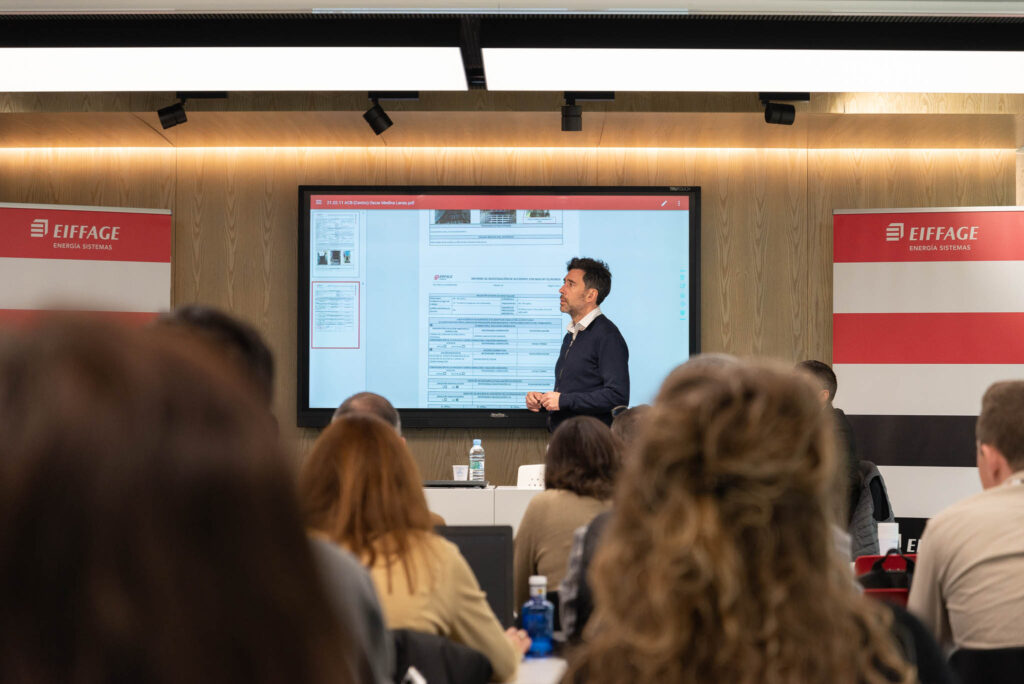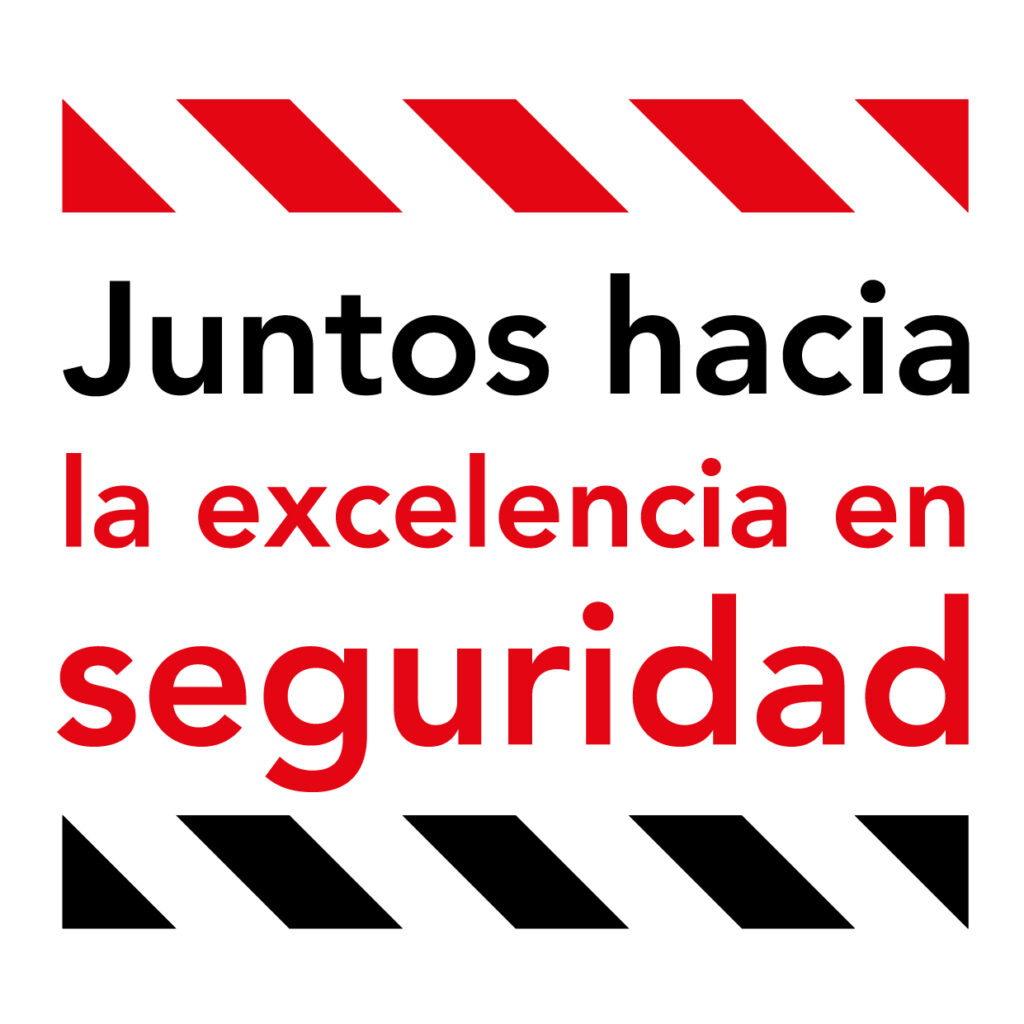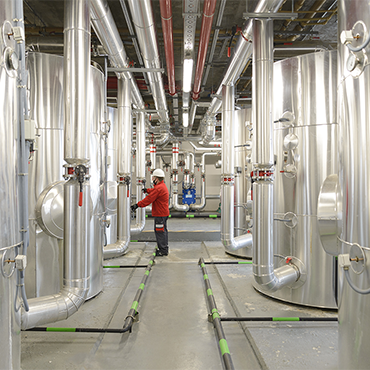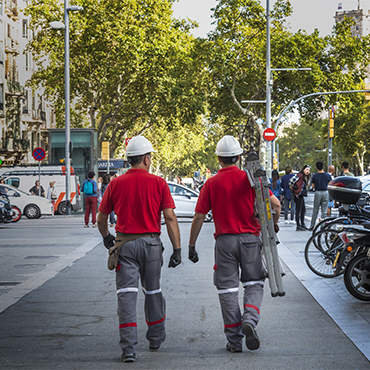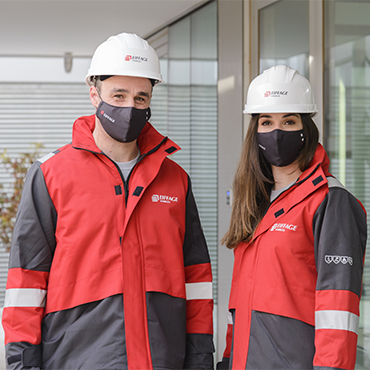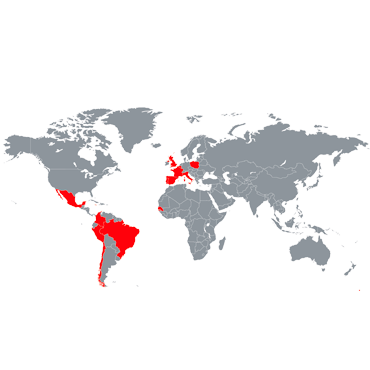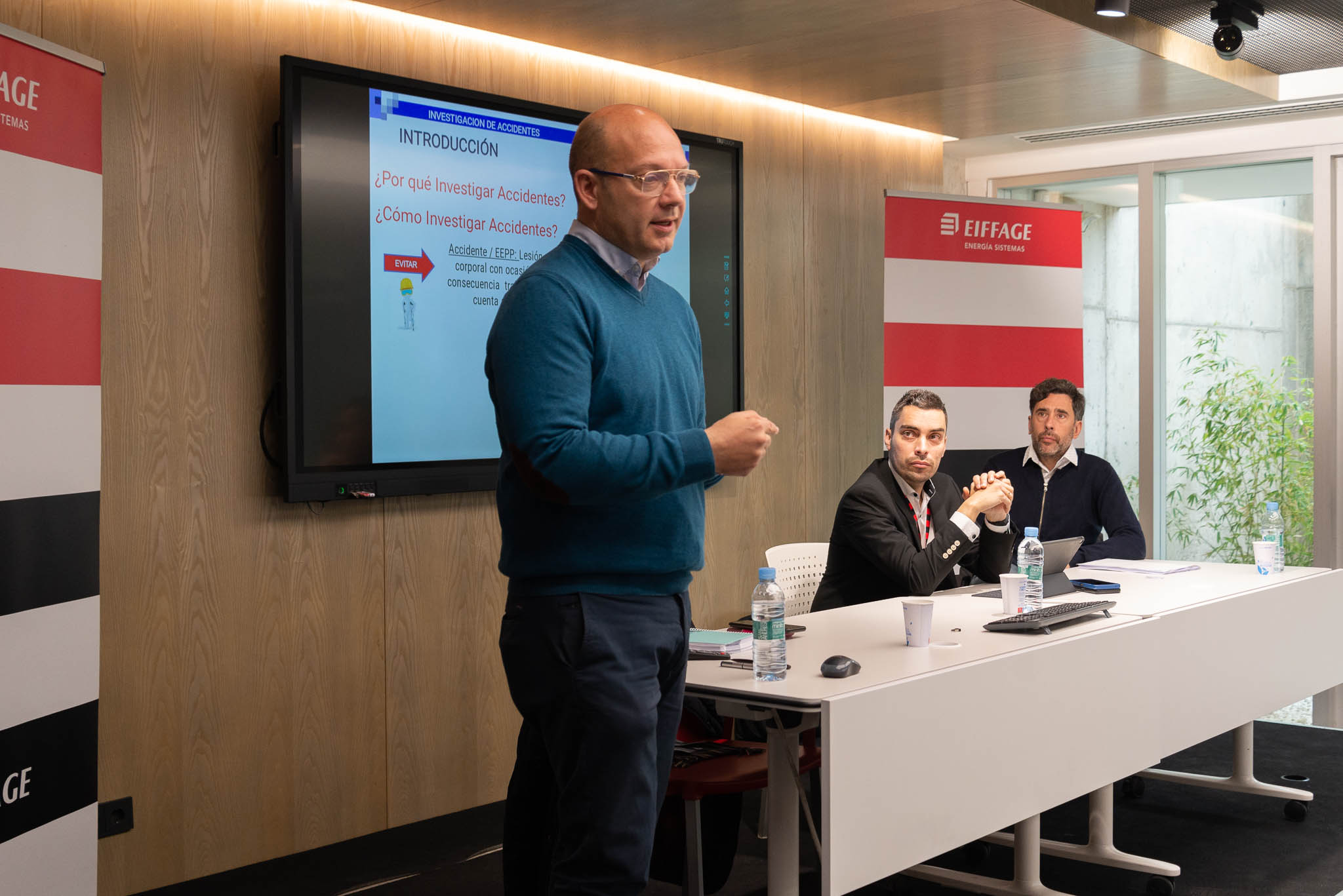Investigation of accidents at work. Our Health and Safety Director, Juan Pablo Valverde Romero, has coordinated several training sessions on accident investigation in collaboration with the Occupational Health and Safety Service of the Albacete Provincial Office of the Department of Economy, Business and Employment.
More than 50 occupational risk prevention technicians took part in this conference, which was given, on behalf of the Government of Castilla-La Mancha by Jesús Oliver Sánchez, Head of the Service, and Miguel Hernández Albaladejo, Occupational Risk Prevention Technician. Both have extensive professional experience in the sector.
Our excellent accident rate data shows Eiffage Energía Sistemas‘ commitment to zero accidents, which is why training in this area is a priority for the company.
Objectives of the investigation of occupational accidents
The main objective of accident investigation is to deduce the causes that led to the accident, by learning about the events that occurred.
Once this objective has been achieved, the immediate objectives are to make use of the knowledge obtained in order to design and implement corrective measures. The aim is both to eliminate the causes in order to avoid a repetition of the same or similar accidents, and to use the experience to improve prevention in the company.

Why Investigate Accidents? How to do it?
These and other questions were answered by the speakers, based on Law 31/95 on Occupational Risk Prevention. Specifically, Article 16 of this legislation states: “in the event of damage to the health of workers, or if the health surveillance provided for in article 22 indicates that the preventive measures are inadequate, the employer shall conduct an investigation to determine the causes of these events”.
Accident investigation is one of the occupational safety techniques. It is defined as a general technique applicable to all situations and types of work; and within this it is included in the analytical techniques (they attempt to identify causes and risk factors) after the accident has occurred.
There is no single method
There is no single, universally valid method for investigating accidents. Any method is valid if it guarantees the achievement of the objectives that are pursued.
However, the investigation of an accident, when it is accepted in principle that it may have numerous causes, in different interrelated areas, is an analytical activity of a certain complexity. For this reason, it is important to have a method, i.e. an established process, which defines or at least provides guidance for the tasks to be performed and the order in which they are to be carried out.
Among the topics discussed during this training were:
-The importance of proper analysis of accidents / incidents. -Legal liability arising from incorrect analysis. -Accident/incident investigation techniques. -Preventive measures resulting from the investigations.
